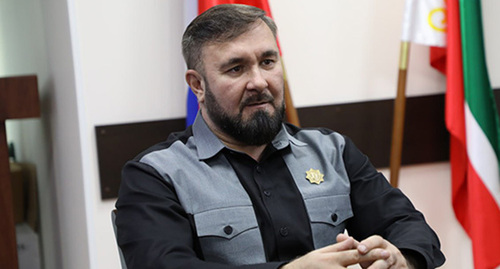Soltaev's intervention in brawl involving Chechen teen indicates Ombudsperson’s abuse of power
The role of Mansur Soltaev, Chechen Human Rights Commissioner (Ombudsperson) in the case of a teenager accused of beating up other minors in the city of Tver is essentially limited to political and administrative pressure on investigators and concern for his fellow countryman’s interests.
Timur Filippov, an advocate, is sure that Mansur Soltaev's attempt to influence investigators fails to meet the Ombudsperson's standards.
"The Ombudsperson has the right to protect citizens’ rights, but he has no procedural status in criminal proceedings. Investigators are not obliged to take his position into account. In this case, the Ombudsperson's communication with investigators is unofficial pressure, not provided for by the Criminal Procedural Code of the Russian Federation," the advocate told the "Caucasian Knot" correspondent.
In Mr Filippov’ opinion, the Soltaev's statement "publicly questions the competence of the Tver investigators" and his actions "are a direct criticism of the investigators involved and an actual accusation of their professional error and incompetence." Besides, the Ombudsperson also cannot influence the change of the preventive measure. "Any review of the freedom restriction measure at the request of the Ombudsperson from another region is impossible. Such a petition can only be filed by a trial participant," the advocate has added.
As for the Ombudsperson's surety, it has weight as an additional guarantee, but is not a ground for any automatic cancellation or change of the previously appointed preventive measure, Timur Filippov has explained. "His intervention is more reminiscent of a public demonstration of ‘a concern for his own people’ than a real human rights action," he has emphasized.
In accordance with federal and regional laws on the Ombudsperson’s activities, the powers thereof within a particular constituent entity of the Russian Federation are limited to the territory of this entity, a lawyer from the “Memorial” Centre for Human Rights Defence (CHRD)* has explained on the condition of anonymity. "Considering Soltaev's influence, such a public assessment of the crime's qualifications could create pressure on investigators and negatively affect the inquiry objectivity," she told the "Caucasian Knot" correspondent. According to her version, Soltaev's surety cannot be the basis for reviewing the court ruling to arrest the suspect.
Svetlana Gannushkina**, the head of the "Civic Assistance" Committee**, has called Soltaev's statements "a substitution of concepts." "There is an investigators’ official version; it was a street brawl, as a result of which there were victims with traumas. He (Soltaev) calls this version erroneous, and is pushing his version only because the suspect is a native of Chechnya. It would be better for him to correct the mistakes of Chechen investigators, because of which dozens of citizens are deprived of their freedom," she told the "Caucasian Knot" correspondent. "Let's swap the victims and suspects; would Soltaev protect these guys from, as he says, an erroneous arrest?" Ms Gannushkina** has concluded.
This article was originally published on the Russian page of 24/7 Internet agency ‘Caucasian Knot’ on April 30, 2025 at 04:33 pm MSK. To access the full text of the article, click here.
*As reported on the website of the Ministry of Justice (MoJ), the reason for including on March 1, 2024, the unregistered "Memorial" Centre for Human Rights Defence (CHRD) into the roster of foreign agents was the spread of "inaccurate information aimed at creating a negative image of the Russian Federation, as well as the Russian Armed Forces."
**Included by the Russian Ministry of Justice (MoJ) into the register of foreign agents.
Source: CK correspondent
